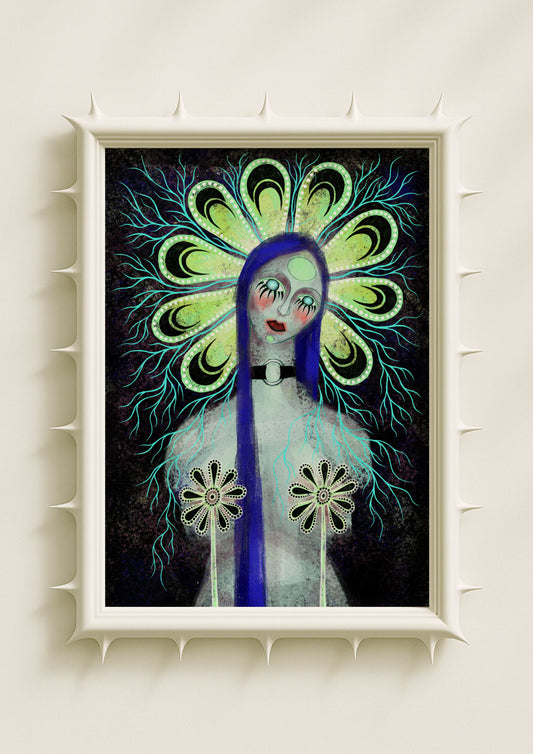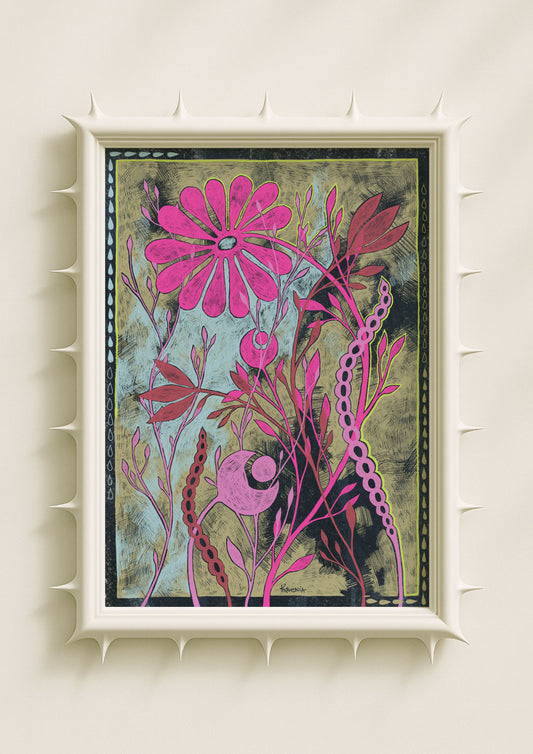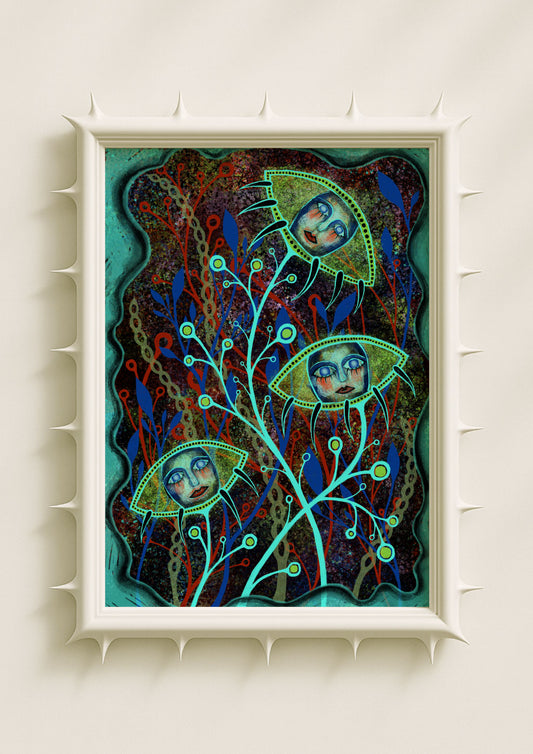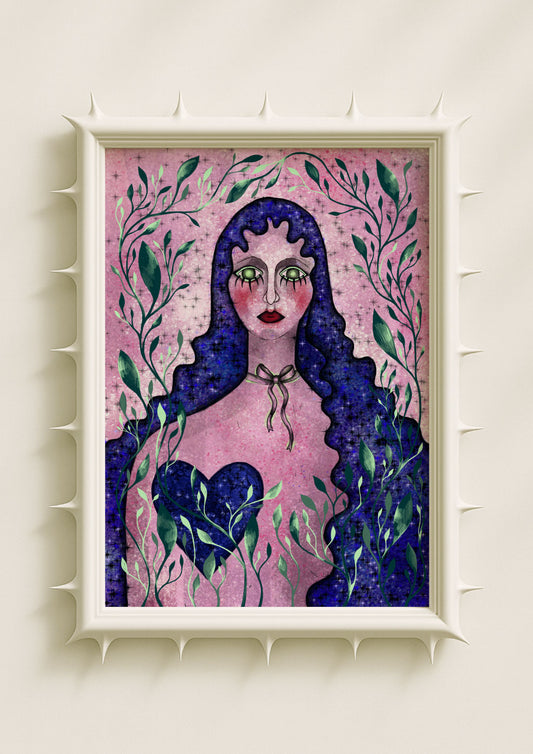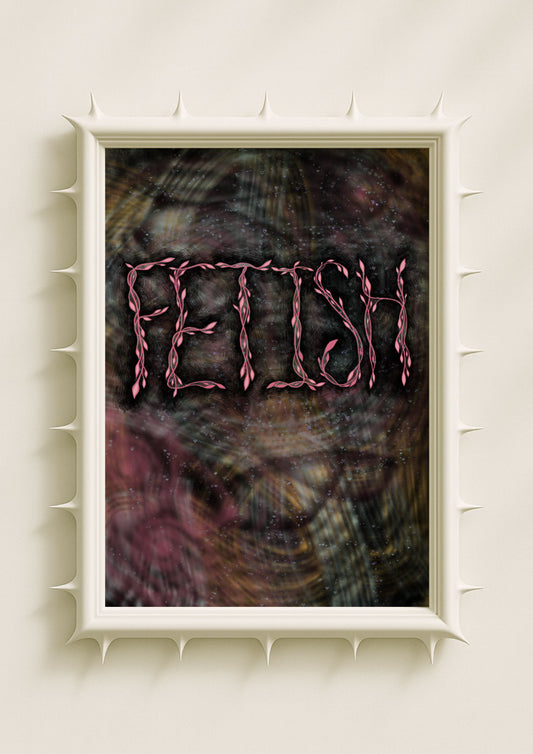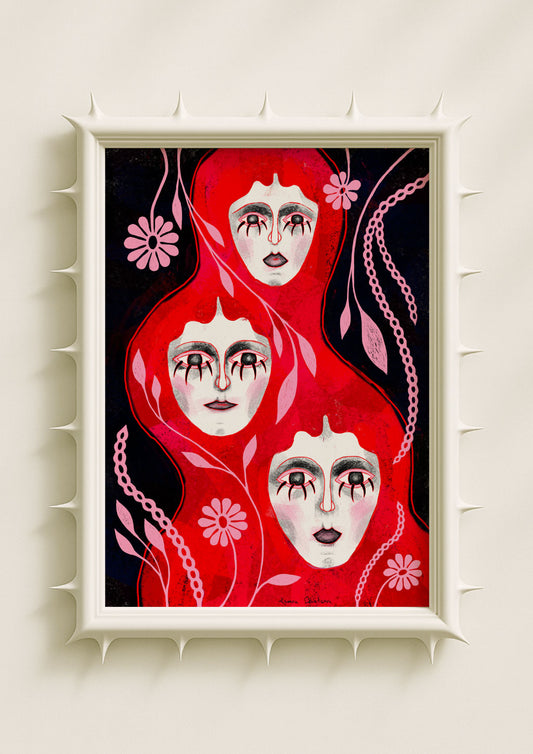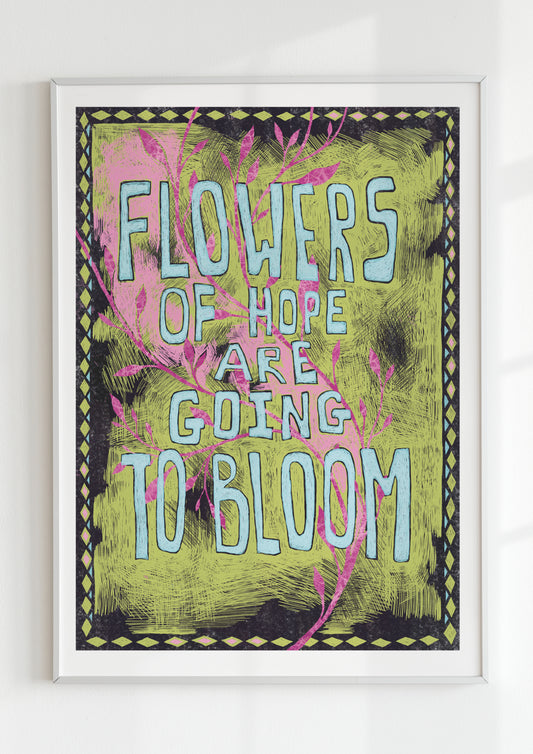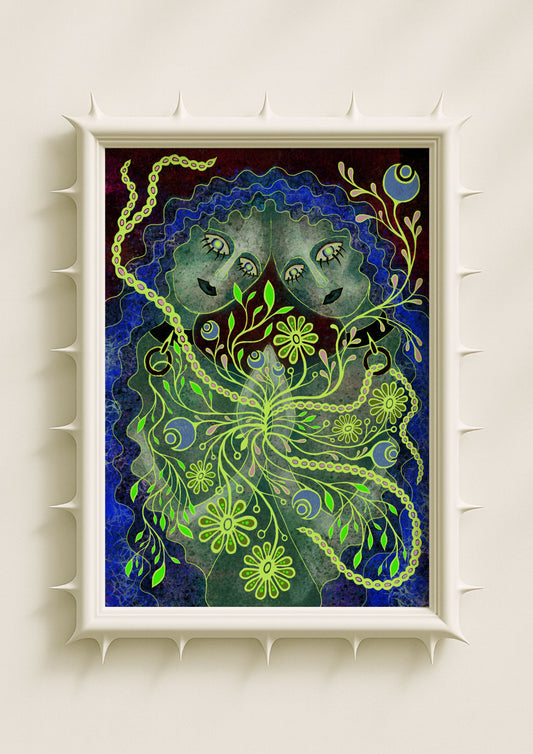Why Soft Darkness Holds Manifestation More Gently Than Light
Manifestation is often imagined as something bright and radiant, filled with clarity and colour. Yet in my work, the beginning of manifestation happens inside soft darkness, a muted and atmospheric form of black that supports emotion rather than hiding it. This darkness is tender rather than heavy; it gives desire a private interior where it can slowly take shape. Instead of pushing the viewer outward, soft black draws the gaze inward, creating a quiet space where intention can form without pressure. It is a state of openness that protects the earliest feeling of wanting, long before it becomes a fully articulated thought.

Soft Black as Emotional Breathing Space
When I paint portraits surrounded by soft black, I am creating the visual equivalent of a long exhale. This darkness slows the emotional rhythm of the image. It creates space around the figure, giving them room to exist without expectation. In this slower, suspended atmosphere, emotions rise more naturally, and desire becomes something the viewer can sense rather than interpret. Soft black does not extinguish feeling; it holds it, giving the internal world enough distance from noise to become recognisable. Manifestation needs this distance, because intention grows best in places where nothing is demanded of it.
Atmospheric Shadows That Protect Vulnerability
The shadows that surround my figures are not meant to obscure them; they are meant to shelter. The way soft black melts into the contours of the portrait creates an environment where vulnerability feels safe. Instead of exposing the figure to the viewer, the darkness acts like a protective cocoon that keeps the emotional world intact. This protection is essential in the early stages of manifestation, when desire is fragile and easily dismissed. The shadows allow the figure to exist without performing emotional clarity, giving them the privacy required to face their inner truth gently.

Desire as a Quiet Inner Movement
In my work, desire presents itself as a subtle motion rather than a dramatic expression. It appears in gradual colour shifts that warm the skin, in gentle transitions that move from shadow into glow, and in the soft luminosity that builds at the centre of a portrait. These quiet signals become more noticeable when surrounded by soft black, which behaves like a silent backdrop that amplifies emotional nuance. The darkness gives these movements weight and intention, turning desire into something contemplative rather than impulsive. It grows like breath, expanding from inside the figure until it becomes visible.
Botanicals Emerging From Darkness
The botanicals in my compositions often rise out of soft black fields or dissolve back into them, creating a sense of emotional life that moves through shadow. A petal glowing against a dark gradient or a seed-form lit from within feels like an organism discovering its own desire. These botanical elements reflect the subconscious nature of wanting — something that begins quietly, often in places we do not consciously observe. The soft-dark atmosphere around them adds a slight uncanniness, not frightening but emotionally charged, mirroring the strange and tender feeling of wanting something before we fully understand it.

Colour as Desire Illuminated by Darkness
Colour behaves differently in the presence of soft black. Warm tones gain emotional heat, cooler tones deepen into calm, intuitive spaces, and vivid accents appear as sudden moments of clarity. When colour emerges from darkness instead of competing with light, it becomes more personal and more intimate. The interaction between soft black and colour feels like a conversation between stillness and intensity, allowing desire to reveal its true tone. This dynamic makes colour a form of emotional illumination, one that becomes sharper and more honest when framed by darkness rather than brightness.
Soft Darkness as a Container for Manifestation
Soft black creates the container that manifestation needs. It holds intention without rushing it, makes room for desire without demanding definition, and offers quiet rather than spectacle. In this darkness, the figure can listen to themselves without interruption. They can acknowledge what they want without resisting it or dressing it up. Manifestation becomes a slow unfolding, grounded in truth rather than fantasy. The softness of the darkness makes this unfolding feel intimate, like witnessing an emotion take its first breath before it steps into the light.
In my work, soft black is never emptiness. It is potential, privacy, and emotional depth. Through shadows, atmospheric quiet and the gentle pull inward, this darkness becomes the birthplace of desire — a space where manifestation emerges not through brightness, but through stillness.
